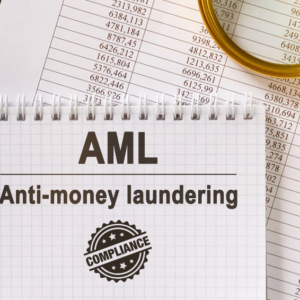Corporate compliance can be a highly complex subject. Depending on the industry and type of organization, there can be hundreds of rules and laws that a company needs to abide by.
Corporate compliance in America is a growing field, and thousands of lawyers specialize in it.
The rules and regulations for corporate compliance keep changing at a fast pace, so attorneys willing to tackle compliance issues must keep abreast of the latest developments in the law.
Whether a company is large or small, there are several compliance requirements that they will need to follow.
The exact compliance requirements depend on the company, even though some compliance requirements apply to almost every company.
As a compliance lawyer, you need to understand a company’s business and then collate the rules and regulations that apply to them.
Here is a list of the major corporate compliance areas in the US and their significance to help you get started.
General Corporate Requirements
Any company that has been incorporated needs to abide by a few certain rules. These rules are laid down in company law.
Company law itself is a vast subject, and several rules only apply to publicly listed companies. However, even small companies need to be aware of several regulations.
Failure to abide by these requirements can lead to heavy fines. Hence, it is in every company’s best interest to determine the company law rules that apply to them and abide by them.
American company law specifically lays down several requirements to ensure that a company acts in the best interest of the shareholders. They ensure the integrity of a company as a separate legal entity.
Procedures have been laid down to allow a company’s incorporation in the first place. If there are any irregularities in a company’s incorporation documents, then the consequences can be quite undesirable.
Anti-Trust Compliance Requirements
Each company needs to ensure that they do not engage in any anti-competitive practices. Price gouging and predatory pricing are some of the types of corporate behavior outlawed in the US.
Anti-trust issues are quite serious and can even lead to the dissolution of a company.
To ensure that your client complies with anti-trust regulations, you need to check the company’s business practices and see if all their dealings are at arms-length.
As a lawyer, you need to inform your clients of all the anti-trust laws in force that apply to them. You can draft a master document for your clients to check whether they are falling foul of any stipulation.
Anti-trust laws must be checked in case of any company reorganization, like a merger or acquisition. Any type of price-fixing or attempt to restrict trade will also fall foul of extant anti-trust regulations in the US.
Securities Law
Whether it’s a public or private company, securities law is relevant to any company that has issued any security.
Securities-related regulations can include regular financial reporting, transparent accounting practices, and relevant disclosures.
The Securities and Exchange Commission (SEC) is in charge of enforcing securities law in the US. Every company should stay up-to-date on the latest regulatory updates released by the SEC to ensure full compliance.
The repercussions of not complying with securities law can be quite serious, especially if the company concerned is a listed public company.
Securities fraud is also an issue that companies need to steer clear of. These days corporate compliance software can help with the job.
Trade Laws
The Federal Trade Commission (FTC) enforces trade regulations and practices.
Any company that sells a product, advertises services in the market, or otherwise interacts with consumers must comply with FTC laws and regulations.
Non-compliance issues run a little deeper than increasing profits. In many cases, companies take undue advantage of consumers to rake in more money. Thus, the FTC’s regulations ensure that consumers are treated fairly.
Compliance with FTC norms is in and of itself relatively straightforward; however, it is extremely important.
FTC norms cast a very wide net. Hence, companies need to ensure that all their managerial employees are aware of the law and do not enforce any corporate practices that breach it.
Environmental Laws
Several environment-related regulations have been put in place, not just on the federal level but also at the state and local levels.
Environmental norms have been put in place to ensure that companies do not behave in a manner that is detrimental to the long-term sustainability of the environment.
The most widely applicable environmental norms are related to water use, energy use, waste management, and pollution. Clients in the manufacturing sector are especially susceptible to environmental laws.
Foreign Conduct Laws
The FCPA or the Foreign Corrupt Practices Act is a highly stringent law that governs the behavior of companies that operate in a foreign jurisdiction.
The most major compliance requirement stemming from this law is anti-corruption and anti-bribery.
US companies are not permitted to bribe or otherwise unduly influence foreign government officials to further their business interests.
Any company that has any kind of operations abroad needs to take strict note of the FCPA. Disregarding the FCPA can even lead to criminal charges on wrongdoers.
Laws Relating To Company Facilities
Apart from corporate offices, if a company operates or maintains any kind of facility, they need to abide by a set of laws applicable to that facility.
They need to ensure compliance with local zoning laws, OSHA (Occupational Safety and Health Administration), DOT (Department of Transportation), and other related laws.
Further, the company needs to ensure worker safety and hygienic working conditions. This includes taking all reasonable steps to ensure that employees are working in a safe environment.
Regular safety checks of company equipment may also be mandated.
Final Thoughts
Corporate compliance is a subject that puts together disparate regulations from several different regulatory bodies.
A compliance lawyer will first need to understand their client’s business and operations before conducting thorough research into the compliance norms that apply to them.
Even a small slip-up can result in heavy fines for the erring company, which makes the job of a corporate compliance officer or lawyer one of high responsibility.
You will need to conduct a complete corporate compliance audit to ensure that a company operates in full compliance.






